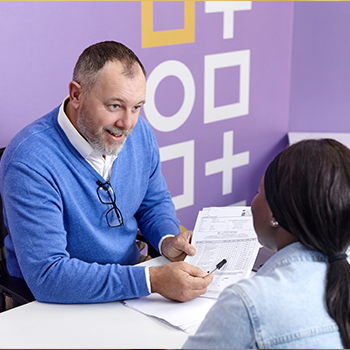
If you are someone who wants to make a difference in the world, and inspire young minds to learn and grow, then teaching may be a fulfilling career path for you. Becoming a teacher in South Africa is a rewarding career choice that requires dedication, compassion, and a commitment to lifelong learning. This guide will provide you with essential information on how to become a teacher in South Africa.
Understanding the Teaching Profession in South Africa
Teaching has become an attractive career option in South Africa due to the country's shortage of teachers. The Department of Education estimates that nearly 45% of teachers will reach retirement age in the next decade, leaving many vacant positions. Furthermore, the number of new teachers graduating annually is less than the number required to fill these positions. According to the department, only 15000 new teachers graduate each year, while the demand is around 25000.
Teaching offers a wide range of specialisations:
- Foundation Phase (Grades R-3)
- Intermediate Phase (Grades 4-6), Senior Phase (Grades 7-9)
- Further Education and Training Phase (Grades 10-12).
It is crucial to consider your interests and strengths while selecting the specialisation that best aligns with your career objectives and passion for teaching.
Educational Requirements and Qualifications
To teach in South Africa, you must possess a recognised Bachelor's degree in Education or a Postgraduate Certificate in Education
The IIE undergraduate and postgraduate qualifications equip a new generation of teachers for the 21st-century classroom.
These include:
- The IIE’s Postgraduate Diploma in Higher Education: a programme aimed at subject matter experts who require deeper insight into education theory or its application.
- The IIE’s Postgraduate Certificate in Education in Senior Phase and Further Education and Training Teaching (PGCE): a professional teaching programme that offers entry-level initial professional preparation for undergraduate degree or diploma holders who wish to develop focused knowledge and skills as classroom teachers in the Senior Phase and Further Education and Training band in their chosen subjects.
- The IIE’s Bachelor of Education (BEd) in Intermediate Phase Teaching (IPT): an undergraduate professional qualification aimed at preparing graduates to teach learners from Grades 4 to 7.
- The IIE’s Bachelor of Education (BEd) in Foundation Phase Teaching (FPT): an undergraduate professional qualification to prepare graduates to teach learners from Grades R to 3.
- The IIE’s Higher Certificate in Early Childhood Care and Education (HCECCE) is an entry-level/introductory qualification (at NQF Level 5) to the study of early childhood development (ECD) education from birth through to four years of age.
Specialisation and subject competency allow teachers to have a deep understanding of the subjects they teach to effectively convey complex concepts, facilitate meaningful discussions, and provide insightful guidance to their students. When teachers are knowledgeable about their subjects, they instill confidence in their students and inspire a passion for learning.
Gaining Practical Experience
Aspiring teachers can gain valuable hands-on experience, understand classroom dynamics better, and apply theoretical knowledge in real-world situations through practical teaching placements and internships.
The benefits of internships include:
- Practical teaching experience is essential for aspiring teachers to bridge the gap between theory and practice. It allows them to apply what they've learned in their coursework to real classroom situations.
- Student teaching placements and internships are great opportunities for them to develop and refine their pedagogical skills, like lesson planning, classroom management, and differentiated instruction.
- Practical teaching experience exposes interns to the diverse educational landscape of South Africa.
- It provides networking opportunities with experienced educators, administrators, and fellow interns.
To find a placement, begin by researching educational institutions, schools, NGOs, and government programmes that provide teaching internships in South Africa. Seek out opportunities that match your interests and future career goals.
Teacher Certification and Registration
Ensure you meet the eligibility criteria set by the South African Council for Educators (SACE) to become a teacher in South Africa. This typically includes having completed an accredited teaching qualification, and a police clearance certificate. The registration application can be submitted online. After registration, you can apply for an educator certificate. This certificate confirms your status as a qualified teacher recognised by SACE.
Finding a Teaching Position in South Africa
Finding a job as a teacher requires a combination of research, preparation, and networking. Check online job listings, visit school websites, contact schools directly, and keep an eye on government job portals for openings.
Continuing Professional Development
Ongoing learning and professional development are crucial for teachers to stay current with best practices, new research, and educational technologies. It improves teaching skills, enhances subject knowledge, and leads to career advancement. In South Africa, there are several opportunities for teachers to pursue advanced degrees or certifications in specialised areas of education. With a recognised teaching qualification from an accredited institution, SACE registration and an educator certificate, you will be ready to make a positive impact in the classroom – and beyond. History shows that quality education, led by quality teachers, has the potential to uplift nations and change lives for the better.
About The IIE’s Varsity College
The Independent Institute of Education (The IIE) of which Varsity College is a brand, is South Africa’s largest registered and accredited private provider of higher education. At Varsity College we understand that no two students are the same or learn the same. That’s why we make sure a student’s education is shaped around them; how they like to learn, what they are passionate about, what makes them tick, and what makes them thrive. Our Education by Design approach allows students to grow into their best, and creates a space where they can live, learn and play – their way.